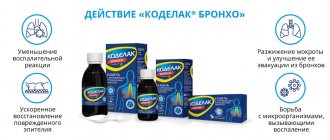Vomiting is far from a pleasant process, especially when it is prolonged. It can occur for completely different reasons: as a result of surgical interventions, taking medications, food poisoning, etc.
Antiemetic pharmaceuticals come to the rescue in such a situation. One of the most effective is Cerucal. It is safe and quickly relieves symptoms in adults and children. There are also analogues of Cerucal, which are also in demand. The article briefly describes the original drug and provides a comparison with substitutes.
Compound
The active substance is metoclopramide hydrochloride monohydrate .
1 tablet contains 10.54 mg of this substance, which in terms of metoclopramide hydrochloride is 10 mg.
Additional substances are: silicon dioxide, potato starch, gelatin, magnesium stearate and lactose monohydrate.
1 ml of solution contains 5 mg of metoclopramide hydrochloride . Additional substances are: disodium edetate, injection water, sodium sulfite, sodium chloride.
Which is better - Cerucal or Motilium
Cerucal is good for vomiting and nausea not associated with brain damage, for example, meningitis, etc. Motilium copes better with bloating in the gastrointestinal tract and has a stimulating effect on its functioning, facilitating the passage of gases.
Pharmacodynamics and pharmacokinetics
The active ingredient is metoclopramide . The main substance is a blocker of serotonin and dopamine receptors. Cerucal eliminates hiccups , heartburn , accelerates gastric emptying, tones the lower sphincter of the esophagus, significantly reduces and slows down the motor activity of the esophagus, does not cause diarrhea, and accelerates the movement of food through the small intestine. The drug stimulates the release of prolactin .
After intravenous administration, the effect of the drug is felt after 1-3 minutes, when administered intramuscularly - after 10-15 minutes. The drug is metabolized in the liver. About 20% is excreted in its original state and about 80% by metabolites.
Cerucal or Ganaton
The main active substance of Ganaton is itopride hydrochloride. It has a double effect:
- stimulates the ability of the stomach and intestines to contract, tones the esophageal sphincter;
- has a suppressive effect on gagging at the level of the medulla oblongata.
In principle, Ganaton is often used as a replacement for Cerucal. There are good reviews about it from those who took it, and doctors often recommend it. However, it has more side effects and is therefore not recommended for use under 16 years of age.
Indications for use of Cerucal
What are tablets and ampoules for?
The medicine is prescribed for hiccups, vomiting, hypotension and atony of the intestines, stomach, reflux esophagitis , biliary dyskinesia, exacerbation of ulcerative lesions of the digestive system, flatulence. What other indications exist for the use of Cerucal? To enhance peristalsis, the drug is used during X-ray contrast studies of the digestive tract.
Side effects of Cerucal
In rare cases, while using the drug, the following develop:
- dizziness;
- dry mouth;
- lack of appetite, impaired taste;
- sleep disorders: insomnia or hypersomnia;
- worsening mood, asthenic syndrome;
- stool disorders;
- decreased motor functions of the biliary tract;
- galactorrhea, increased prolactin levels;
- Women may experience a delay in their menstrual cycle.
If such symptoms appear, it is necessary to adjust the dosage of the drug or select another similar remedy.
Cerucal requires careful use in cases of bronchial asthma, renal failure, cardiac disorders, hypertension, and a tendency to allergic reactions.
Contraindications
Cerucal is not prescribed for bleeding in the digestive system, metoclopramide intolerance, pheochromocytoma , intestinal and gastric perforation, mechanical intestinal obstruction, pyloric stenosis , epilepsy, extrapyramidal disorders, in the presence of prolactin-dependent tumors, Parkinson's disease. For arterial hypertension, bronchial asthma, kidney and liver pathologies, in pediatrics it is prescribed with caution.
In what cases is it necessary to replace Cerucal with something?
Currently, Cerucal is one of the best drugs due to its speed of action and minimal side effects. Sometimes you have to resort to analogues due to the presence of contraindications to its use:
- pregnancy and lactation;
- epilepsy;
- individual intolerance;
- increased sensitivity to the composition of the drug;
- intestinal obstruction due to mechanical blockages;
- bleeding in the stomach.
In these cases, it is worth looking for a replacement.
Side effects
Cerucal can cause the following side effects: diarrhea , constipation , drowsiness, dizziness, dry mouth, depression. Long-term use of high doses by elderly people causes gynecomastia, dyskinesia , parkinsonism, and galactorrhea. In case of overdose, extrapyramidal disorders , disorientation , and hypersomnia are recorded. After discontinuation of the drug, the symptoms disappear within a day.
Which is better - Cerucal or Domperidone
Domperidone blocks the urge to vomit and enhances contraction of the intestinal muscles. Unlike Cerucal, it does not penetrate the brain, and therefore there are noticeably fewer side effects when taking it.
For example, there is no lethargy, drowsiness, fatigue, decreased performance, etc. It has fewer contraindications: intolerance to components, intestinal perforation, bleeding, obstruction, up to 5 years, excessive production of prolactin.
Instructions for use of Cerucal (Method and dosage)
Cerucal tablets, instructions for use
The drug is taken orally 30 minutes before meals three times a day, 5-10 mg. It is recommended to take the tablet with a large volume of liquid. The maximum daily dose is 60 mg, single dose is 20 mg.
Cerucal injections, instructions for use
Adults and from 14 years of age are administered intramuscularly or slowly intravenously, one ampoule 1-3 per day.
Children from 2 to 14 years old need to be given injections at the rate of 0.1 mg/kg, the maximum permissible dose per day is 0.5 mg/kg.
Cerucal solution for injection 5 mg/ml 10 ampoules of 2 ml
Registration Certificate Holder
Teva Pharmaceutical Industries (Israel)
Dosage form
Medicine – Cerucal® (Cerucal)
Description
Solution for intravenous and intramuscular administration
transparent, colorless.
1 ml
1 amp.
metoclopramide hydrochloride 5 mg 10 mg
Excipients
: sodium sulfite, disodium EDTA, sodium chloride, liquid water.
2 ml - ampoules (5) - contour plastic packaging (1) - cardboard packs.
Indications
- vomiting and nausea of various origins;
- atony and hypotension of the stomach and intestines (in particular, postoperative);
- biliary dyskinesia, reflux esophagitis, functional pyloric stenosis;
- to enhance peristalsis during radiopaque studies of the gastrointestinal tract;
- gastric paresis in diabetes mellitus;
- as a means of facilitating duodenal intubation (to speed up gastric emptying and move food through the small intestine).
Contraindications for use
- hypersensitivity to metoclopramide;
- pheochromocytoma (possible hypertensive crisis due to the release of catecholamines);
- intestinal obstruction, intestinal perforation and gastrointestinal bleeding;
- prolactin-dependent tumor;
- epilepsy and extrapyramidal movement disorders, first trimester of pregnancy and lactation, age up to 2 years.
Carefully:
for arterial hypertension, liver dysfunction, hypersensitivity to procaine and procainomide, children aged 2 to 14 years
During the 2nd and 3rd trimesters of pregnancy, the drug is prescribed only for health reasons.
For patients with reduced renal function, the drug is prescribed in reduced doses.
Due to the sodium sulfite content, the drug should not be prescribed to patients with bronchial asthma with hypersensitivity to sulfite.
pharmachologic effect
A specific blocker of dopamine receptors, weakens the sensitivity of the visceral nerves that transmit impulses from the pylorus and duodenum to the vomiting center. Through the hypothalamus and parasympathetic nervous system, it has a regulating and coordinating effect on the tone and motor activity of the upper gastrointestinal tract (including the tone of the lower digestive sphincter at rest). Increases the tone of the stomach and intestines, accelerates gastric emptying, reduces hyperacid stasis, prevents pyloric and esophageal reflux, stimulates intestinal motility.
Drug interactions
Incompatible with alkaline infusion solutions.
Reduced effect of anticholinesterase drugs.
Enhances the absorption of antibiotics (tetracycline, ampicillin), paracetamol, levodopa, lithium and alcohol.
Reduces the absorption of digoxin and cimetidine.
Strengthens the effect of alcohol and drugs that depress the central nervous system.
Antipsychotic drugs should not be prescribed simultaneously with metoclopramide to avoid a possible increase in extrapyramidal disorders.
May affect the effect of tricyclic antidepressants, monoamine oxidase inhibitors (MAOIs) and symptomatic agents.
Reduces the effectiveness of therapy with H2-histamine blockers.
Increased risk of developing hepatotoxicity when combined with hepatotoxic agents.
Reduces the effectiveness of pergolide and levodopa.
Increases the bioavailability of cyclosporine, which may require monitoring its concentration.
Increases the concentration of bromocriptine.
When cerucal is prescribed simultaneously with thiamine (Vitamin B1), the latter quickly disintegrates.
Dosage regimen
IM or slow IV.
Adults and teenagers over 14 years of age:
1 ampoule (10 mg metoclopramide) 3-4 times a day.
Children from 3 to 14 years old:
The therapeutic dose is 0.1 mg metoclopramide/kg body weight, the maximum daily dose is 0.5 mg metoclopramide/kg body weight.
In case of renal dysfunction, the dose of the drug is selected according to the severity of renal dysfunction.
Creatinine clearance Dose of metoclopramide
up to 10 ml/min 10 mg 1 time per day from 11 to 60 ml/min daily dose 15 mg, divided into two doses (10 mg + 5 mg)
Prevention and treatment of nausea and vomiting caused by the use of cytostatics:
Scheme 1.
Short-term drip infusion (over 15 minutes) at a dose of 2 mg/kg half an hour before the start of treatment with a cytostatic agent, and then 1.5 hours, 3.5 hours, 5.5 hours and 8.5 hours after the use of cytostatics.
Scheme 2.
Long-term drip infusion at a dose of 1.0 or 0.5 µg/kg per hour, starting 2 hours before using the cytostatic agent, then at a dose of 0.5 or 0.25 mg/kg per hour over the next 24 hours after using the cytostatic agent.
The drip infusion is carried out briefly for 15 minutes after preliminary dilution of the dose of cerucal in 50 ml of infusion solution.
Cerucal injection solution can be diluted with isotonic sodium chloride solution or 5% glucose solution.
Cerucal is used throughout the entire period of treatment with cytostatic agents.
Overdose
Symptoms:
drowsiness, confusion, irritability, anxiety, convulsions, extrapyramidal movement disorders, dysfunction of the cardiovascular system with bradycardia and arterial hypo- or hypertension. In mild forms of poisoning, symptoms disappear 24 hours after discontinuation of the drug. Depending on the severity of symptoms, it is recommended to monitor the patient’s vital functions. Fatal cases of poisoning due to overdose have not yet been identified.
Treatment:
symptomatic. Extrapyramidal disorders are eliminated by slow administration of biperiden (dose for adults - 2.5 - 5 mg; manufacturer's recommendations should be followed). Diazepam may be used.
Side effect
From the nervous system:
sometimes you may experience a feeling of fatigue, headaches, dizziness, fear, anxiety, depression, drowsiness, tinnitus; in some cases, mainly in children, dyskinetic syndrome (involuntary tic-like twitching of the muscles of the face, neck or shoulders) may develop. Extrapyramidal disorders may appear: spasm of the facial muscles, trismus, rhythmic protrusion of the tongue, bulbar type of speech, spasm of extraocular muscles (including oculogyric crisis), spastic torticollis, opisthotonus, muscle hypertonicity. Parkinsonism (tremor, muscle twitching, limited mobility, the risk of development in children and adolescents increases when the dose exceeds 0.5 mg/kg/day) and tardive dyskinesia (in elderly patients with chronic renal failure). In isolated cases, severe neuroleptic syndrome may develop.
With long-term treatment with Cerucal, elderly patients may develop symptoms of parkinsonism (tremor, muscle twitching, limited mobility) and tardive dyskinesia.
From the hematopoietic system:
agranulocytosis.
From the cardiovascular system:
supraventricular tachycardia, hypotension, hypertension.
From the gastrointestinal tract:
constipation, diarrhea, dry mouth.
From the endocrine system:
with long-term use of the drug, gynecomastia (enlargement of the mammary glands in men), galactorrhea (spontaneous leakage of milk from the mammary glands) or menstrual irregularities may occur; If these phenomena develop, metoclopramide is discontinued.
special instructions
During the treatment period, it is necessary to refrain from driving vehicles and engaging in potentially hazardous activities that require increased concentration and speed of psychomotor reactions.
During treatment, patients are prohibited from drinking alcohol.
In adolescents and in patients with severely impaired renal function, monitor for the possible development of side effects; if they occur, the drug is discontinued.
Not effective for vomiting of vestibular origin.
During the use of metoclopramide, distortion of data on laboratory parameters of liver function and determination of the concentration of aldosterone and prolactin in plasma is possible.
Storage conditions
List B.
The drug should be stored in a place protected from light, at a temperature not exceeding 30°C.
Keep out of the reach of children.
Best before date
Shelf life: 5 years. Do not use after the expiration date.
Use during pregnancy and breastfeeding
Restrictions during pregnancy - Contraindicated. Restrictions when breastfeeding - Contraindicated.
Contraindicated for use in the first trimester of pregnancy and lactation.
In the second and third trimesters of pregnancy, the drug is prescribed only for health reasons
Use for renal impairment
Restrictions for impaired renal function - With caution.
For patients with reduced renal function, the drug is prescribed in reduced doses. In patients with severely impaired renal function, monitor for the possible development of side effects; if they occur, the drug is discontinued.
Use for liver dysfunction
Restrictions for liver dysfunction - With caution.
Use this drug with caution in case of liver dysfunction.
Use in children
Restrictions for children - Contraindicated.
Cannot be prescribed to children under 2 years of age.
Prescribe with caution to children aged 2 to 14 years. In adolescents, monitor for the possible development of side effects; if they occur, the drug is discontinued.
Terms of sale
The drug is available with a prescription.
Overdose
The following phenomena are observed: hallucinations, drowsiness, irritability, convulsions, decreased level of consciousness and confusion, arrest of respiratory and cardiac activity, anxiety, extrapyramidal disorders, dysfunction of the cardiovascular system, dystonic reactions.
In case of overdose, symptomatic treatment should be used.
Interaction
Anticholinesterase drugs weaken the effect of metoclopramide. Cerucal increases the absorption of paracetamol, ampicillin , tetracycline, ethanol, levodopa , ascorbic acid. The drug reduces the absorption of cimetidine and digoxin. The simultaneous administration of antipsychotics (the risk of developing extrapyramidal disorders increases).
special instructions
According to the annotation, in some cases it is recommended to additionally use antiparkinsonian drugs, central anticholinergic blockers . It is unacceptable to consume ethanol during treatment with Cerucal. The drug affects the performance of complex activities, driving a car.
INN: Metoclopramide.
The medicine is used in veterinary medicine for cats and dogs.
Recipe in Latin:
Rp: Tab. Metoclopramidi (Cerucali) 0.01 DS 1 tab. 3 times a day before meals
Cerucal or Ondansetron
Ondansetron has a similar mechanism of action on the body with similar drugs listed above. It also blocks peripheral serotonin receptors in the intestinal tract and brain.
Therefore, it effectively prevents and stops vomiting. It is often used during radiation and chemotherapy against tumors. As a result of its intake, contractions in the intestines slow down (with multiple repeated doses).
Additionally, it has a calming effect. And unlike other anti-anxiety drugs, it does not reduce performance and does not affect coordination.
Conveniently, it can be taken orally or intramuscularly. Eating slows down the absorption of the substance, but does not affect the maximum concentration. It is quickly eliminated from the body, after 3 hours.
Compared to Cerucal, it is inferior to it in the speed of action, as well as in more side effects. In principle, a good replacement.
Analogues of Cerucal
Level 4 ATX code matches:
Passazhix
Motinorm
Domrid
Motilium
Itomed
Metoclopramide
Domperidone
Motilak
Ganaton
Analogues of the drug are Metoclopramide , Metukal .
Cerucal price, where to buy
The price of Cerucal in 10 mg tablets is 125 rubles for 50 pieces. The cost in Ukraine is 130 hryvnia.
The price of Cerucal in ampoules of 2 ml is 230 rubles for 10 pieces.
- Online pharmacies in RussiaRussia
- Online pharmacies in UkraineUkraine
- Online pharmacies in KazakhstanKazakhstan
ZdravCity
- Cerucal solution for intravenous and intramuscular injection.
5mg/ml 2ml 10 pcs. Merkle GmbH RUB 243 order - Cerucal tablets 10 mg 50 pcs. Pliva Hrvatska d.o.o.
119 RUR order
Pharmacy Dialogue
- Cerucal ampoules 10mg 2ml No. 10Merckle GmbH
RUB 243 order
- Cerucal (tab. 10 mg No. 50)Pliva
107 RUR order
show more
Pharmacy24
- Cerucal 10 mg 2 ml N10 solution for injection Merkle GmbH, Nimechchina
458 UAH.order - Cerucal 10 mg No. 50 tablets Pliva Hrvatska d.o.o., Croatia
260 UAH order
PaniPharmacy
- Cerucal ampoule Cerucal solution d/in. 10mg amp. 2ml No. 10 Hungary, Teva
441 UAH order
- Cerucal tablets Cerucal tablets. 10 mg No. 50 Croatia, Pliva
258 UAH. order
show more







